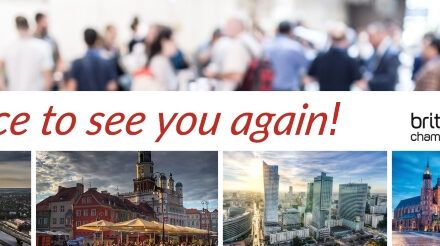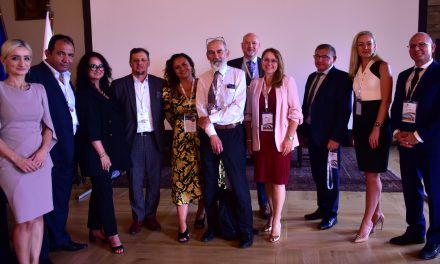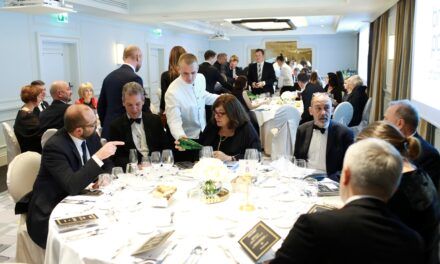Host of the first post-summer-holiday meeting of the BPCC’s Real Estate & Construction Breakfast was JLL. The meeting, held in JLL’s offices in the Warsaw Spire, focused on ESG and non-financial reporting as it affects the sector. Traditionally, the breakfast event served as a round-table forum to look at current state of trade and to determine topics for further group discussion.
One key aspect of the ESG issue is the danger of stranded assets – buildings that do not comply with environmental standards will become increasingly hard to lease or sell on. Re-purposing – adaptive re-use – is an answer, and this will be the subject of the next BPCC Real Estate & Construction event.
The Breakfast was opened with a welcome from Mateusz Bonca, CEO Poland for JLL, and the round-table discussion was moderated by the BPCC’s chief advisor, Michael Dembinski.
Jakub Frejlich, director of ESG, Strategic Consulting, JLL, gave a presentation about the ways the climate change will affect Poland, with droughts and heatwaves creating new challenges for the built environment. He spoke about the new reporting requirements and EU taxonomy, and how relatively unprepared Polish firms (especially smaller ones) currently are when it comes to compliance.
The round-table discussion allowed participants to share their views of how the Polish real estate and construction markets are developing. Being able to hear from a broad group of architects, contractors, building-material producers, developers, asset managers, real-estate advisors and lawyers, gave participants an excellent overview as to the current state of the sector. The exchange of experiences from across the market built up into a patchy overall picture, with some areas doing extremely well, while others still experience the doldrums caused by the current ‘wait-and-see’ approach of many investors.
It is clear that the rebuilding of Ukraine is created demand already within Poland’s construction sector, notably in terms of materials. The private rental sector (PRS) is growing rapidly, albeit from a low base; warehouses continue to perform well.
Held under the Chatham House rule (after the meeting you can say what was said at the meeting, but you can’t say who said it), the round-table format encourages an open exchange of experiences and insights into current and future market trends. The Real Estate & Construction group is one of the most active in the BPCC, and the round-table meetings are held quarterly to map out topics of interest for future substantive events.
There was plenty of time for networking; the BPCC would like to thank JLL for hosting the event and for sharing information about ESG as it affects the sector.
























